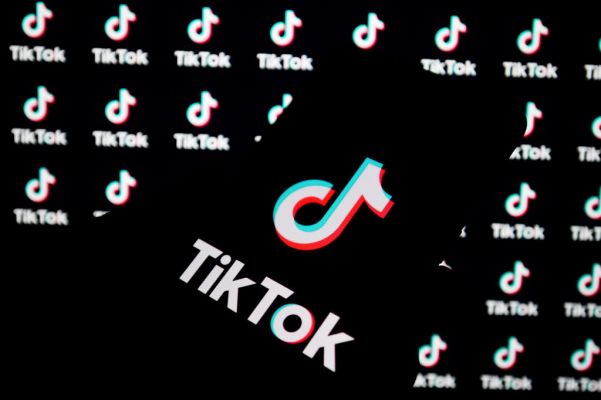TikTok had already offered its statement regarding the Trump administration’s executive order that will ban the app from the U.S. if it’s not sold by Chinese-owned parent company ByteDance by a given deadline. Today, the company has additionally launched its own online informational hub and a new Twitter account designed to give it a dedicated platform for its collected responses, including those where it may need to respond more quickly — perhaps in response to the president’s tweets, for example, or with other breaking news.
On Monday, TikTok launched tiktokus.info, a website that organizes the company’s statements, news coverage, “expert opinions,” FAQs and other resources in a single destination. Oddly titled “The Last Sunny Corner of the Internet,” TikTok makes the case for its app as a place where millions express themselves creatively. It also goes on record to flatly deny that it would ever provide TikTok U.S. user data to the Chinese government. And it spells out its commitments to areas like user safety and security, as well as its commitments to combating election misinformation and interference, among other things.
TikTok also strongly refers to the growing concerns over U.S. user privacy and security as “rumors and misinformation” that are “proliferating in Washington and in the media.”
The app, in the months leading up to the executive order, had become the subject of a national security investigation in the U.S. due to its Chinese ownership. Despite TikTok’s proclamations that it would never share U.S. user data with China’s government, a Chinese law introduced in 2017 requires Chinese companies to do just that, when asked, raising concerns about to what extent TikTok would be able to decline such a request.
Meanwhile, a more recently published investigation by The WSJ found that TikTok had been tracking Android user data, specifically users’ MAC addresses, using a tactic that was in violation of Google’s Play Store policies and obfuscated using “an unusual added layer encryption.” TikTok ended the practice last November after 15 months of data collection, the report said. However, the U.S. Federal Trade Commission considers the MAC address “personally identifiable information” under some privacy laws.
Beyond its round-up of on-the-record statements attributed to both TikTok and its execs, including TikTok CEO Kevin Mayer, the new website highlights any coverage it deems favorable. These links range from pro-TikTok op-eds that come out against the Trump E.O. to mere write-ups about this or that TikTok star’s success, or those that detail how advertisers and brands are using TikTok’s ad technology to reach consumers. These are bundled underneath the website’s “expert opinions” section, which also features statements from civil liberties organizations and others, like the ACLU, Information Technology & Innovation Foundation, Internet Governance Project and more.
The website’s FAQ section answers questions like “has TikTok ever shared user data with the Chinese government?” and well, “would it,” if asked? Both questions are answered, not surprisingly, “no.” It also clarifies that TikTok U.S. user data is stored in Virginia, with a back-up in Singapore and strict controls on employee access.
The company also launched “@tiktok_comms” on Twitter to share news and updates from the TikTok Communications Team. While it’s common for companies to have a social media presence to share their news, this account’s launch in particular seems designed with the goal of being able to more quickly react to changes and updates surrounding its U.S. ban, which has already been extended to 90 days after the issuing of the E.O., instead of 45 days, as before.
Creating a dedicated website to tout a company’s official position on a topic has become a more common tactic now that world governments are more actively involving themselves in the tech industry’s business. Apple, for instance, launched a website to defend its App Store against U.S. antitrust complaints. Google today even co-opted its main Search page to lobby against a change to a law in Australia that would force it to share ad revenues with media businesses.
But the new website isn’t the only way TikTok has been fighting back to retain its place in the key U.S. market. The company also reportedly plans to challenge the constitutionality of the ban in a lawsuit. Plus, U.S. TikTok employees are planning their own legal challenge to the ban — all news of which will likely soon hit the new website and Twitter, we’d wager.
